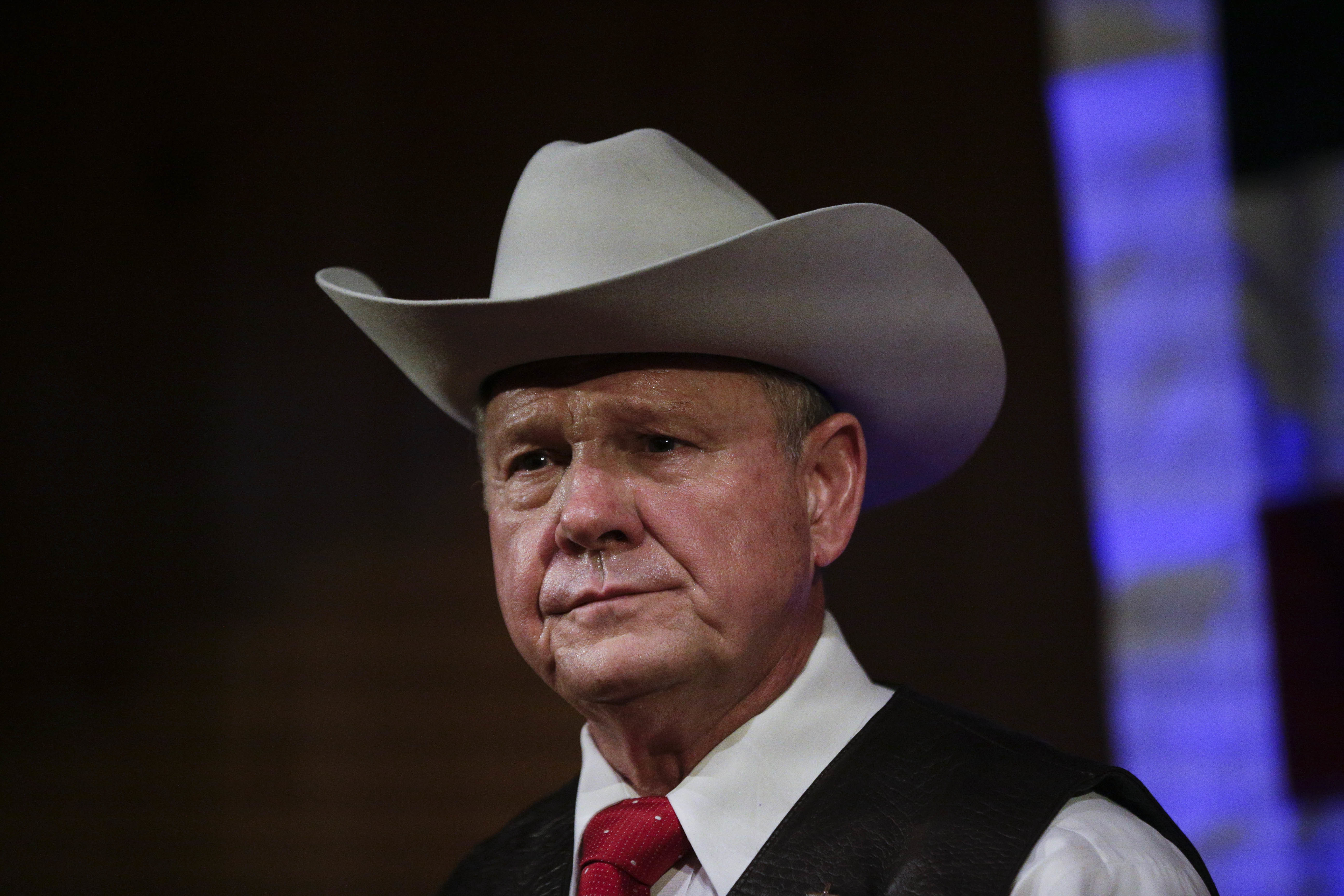On Friday afternoon, embattled Alabama Senate candidate Roy Moore appeared on Sean Hannity’s radio show to discuss Thursday’s Washington Post report detailing allegations that he sexually assaulted a 14-year-old and pursued sexual relationships with other teens while he was in his 30s.
Moore’s initially denied the allegations in their entirety but he was far more equivocating with Hannity. Though he denied even knowing the youngest alleged victim, then 14-year-old Leigh, Moore acknowledged that he did know two of the other victims named in the report. He denied allegations that he engaged in unlawful behavior with any of them, including one anecdote that he provided one underaged victim with wine.
When asked by Hannity if he had any recollection of dating teenage girls when he was in his mid-thirties, Moore said it would be “out of my customary behavior,” but stopped short of denying that he did. At another point in the interview he said he didn’t “generally” remember pursuing girls that young.
Instead, Moore seemed to validate some of the Post’s reporting, confirming, for instance, that he would seek permission from a girl’s mother before he would try to date her.
Moore’s interview comes after a day of intense hand-wringing by conservatives and Republicans who were quick to put some distance between themselves and Moore’s campaign — though not very forcefully. Many Republicans said that if the allegations were substantiated, Moore would have no place in the U.S. Senate. On that point, Moore agreed.
Roy Moore asked by Hannity if a 32-year-old candidate who dates a teenager should be allowed in the Senate.
Moore says of course not — immediately after saying he can't remember if he did, but doesn't think so.
— David Mack (@davidmackau) November 10, 2017
Following the interview, Moore’s campaign released another statement addressing the Post’s report. The new statement denied “providing alcohol to minors” and “sexual misconduct” but did not specifically deny pursing sexual relationships with teenagers as an adult.
